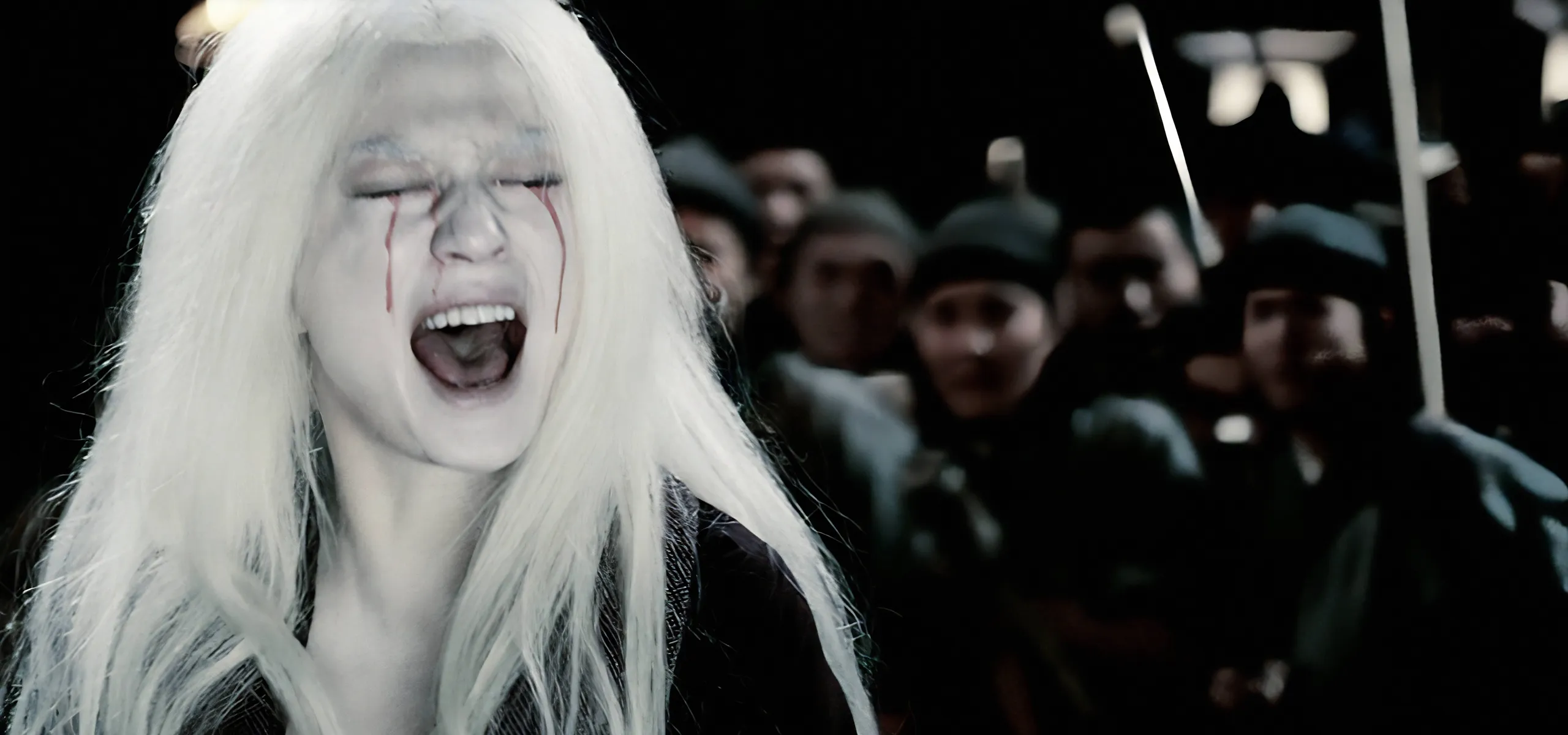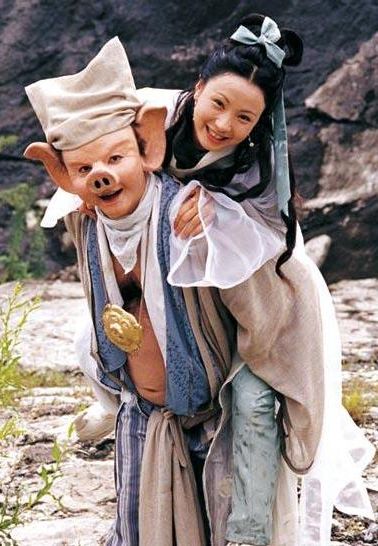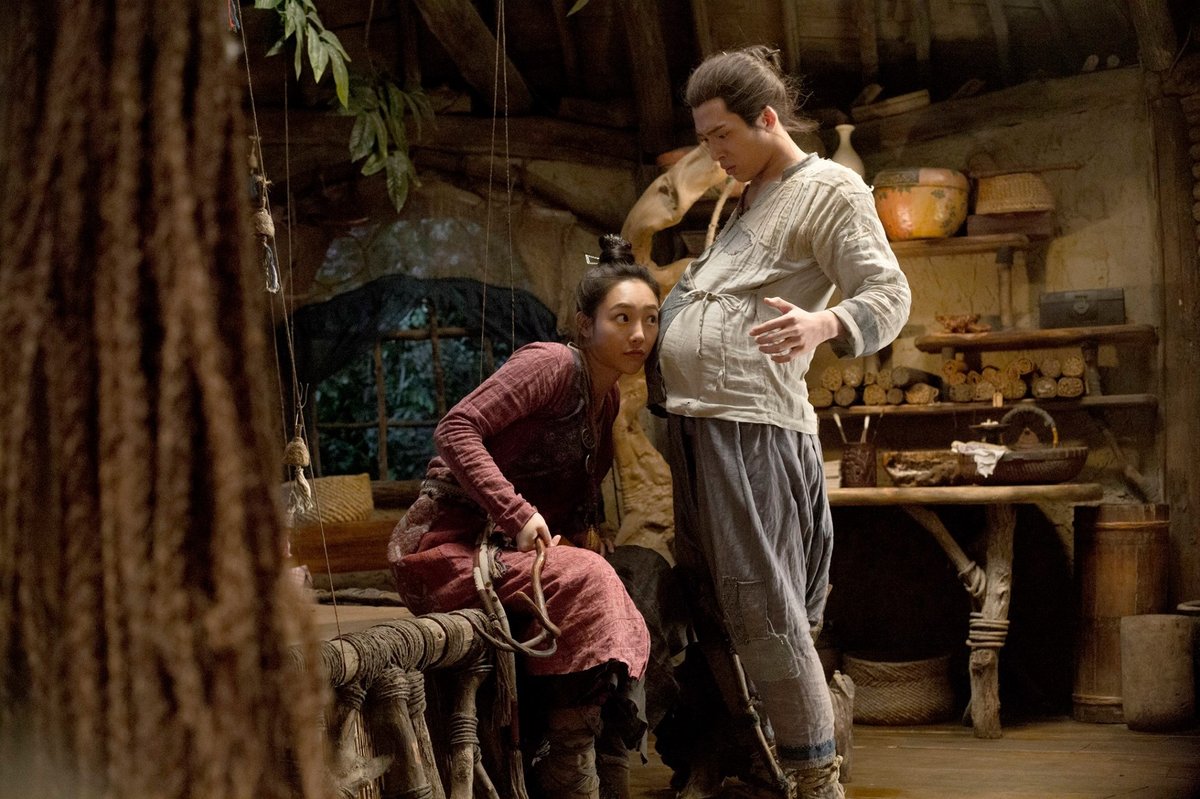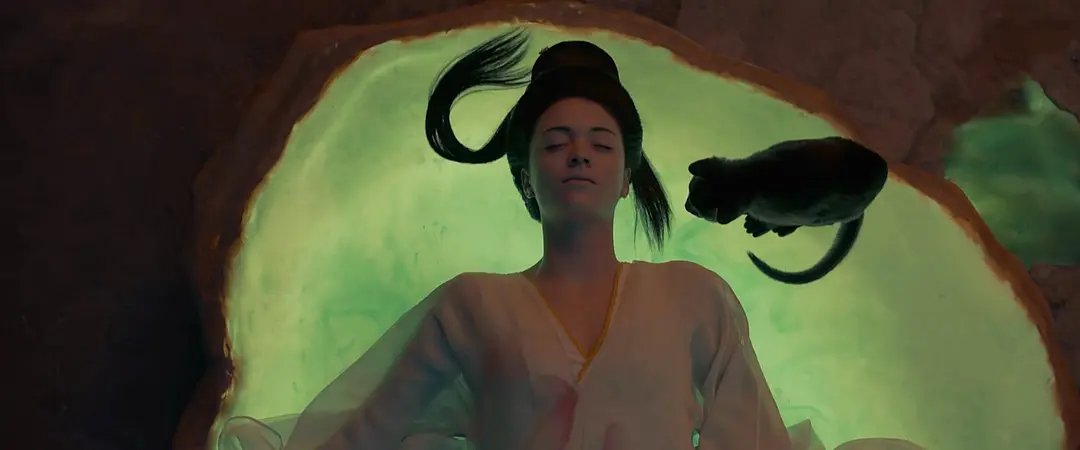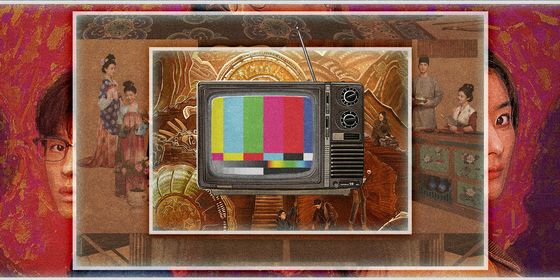Ghosts might be restricted on Chinese screens, but there are plenty of monster films to watch this Zhongyuan Festival
Today, the door of the underworld opens and its residents can visit the world of the living. At least, that’s the traditional belief that underpins Zhongyuan Festival, or Ghost Festival, which occurs on the fifth day of the seventh lunar month in China. Chinese people traditionally burn “ghost money (冥币),” paper clothes, and even paper gadgets like iPhones to offer to their ancestors (though celebrations may vary from place to place).
But despite traditional beliefs emphasizing the existence of an afterlife, ghosts and other creepy spirits are often restricted on TV, and have even been banned by authorities eager to combat “superstitious beliefs.”
While ghosts struggle to get on screen, yaoguai (妖怪)—a collective term for “evil spirits (妖 yāo)” that are transformed from magic plants or animals, and “monsters (怪 guài),” namely beasts or even non-living objects such as jade and musical instruments—have thrived. This July, Creation of the Gods, an adaption of the Ming dynasty (1368 – 1644) fantasy novel Investiture of the Gods (《封神演义》), made over 2.4 billion yuan at the box office in a month, despite its unconventional depiction of the fox spirit Daji, who has been often blamed for the fall of the Shang dynasty (1600 – 1046 BCE).
Yaoguai were originally created by ancient people out of horror, anxiety, and awe, rather than for entertainment purposes. But Sanlian Lifeweek reported in August this year that even people today use monster stories as a form of escapism. In an article titled “Why Yaoguai Stories Always Go Viral,” Sanlian concluded that people “often cast their desires on yaoguai. To read yaoguai stories is to fulfill dreams they cannot materialize in reality.”
To get your yaoguai fix today on Zhongyuan Festival, here are five must-see Chinese monster movies:
Sunny Piggy 《春光灿烂猪八戒》(TV series, 2000)
Loosely based on the classic Chinese novel Journey to the West, written in the 16th and 17th centuries, this TV series tells the story of Zhu Bajie—a pig who explores the world in a man’s body after accidentally getting involved in a deity’s fight with a cat demon. Much of the story focuses on his love for the youngest daughter of the Dragon King of the East Sea, and features a tearjerking ending: The Dragon Princess sacrifices herself to turn into a fountain and save the drying sea.
Major characters in the story include Chang’e, the Goddess in the Moon, and Hou Yi, who in Chinese mythology shot down extra suns to save the world from extreme heat. But Sunny Pig is an original story and has a novel take on Zhu Bajie. In many adaptations of Journey to the West, the Pig is depicted as a slovenly, grotesque individual, but the male lead in Sunny Pig takes a more human form and is slim, even cute.
Painted Skin《画皮》(Film, 2008)
In the Qin (221 – 2026 BCE) and Han (25 – 220 CE) dynasties, General Wang (Chen Kun) saves a young woman called Xiao Wei (Zhou Xun) from a rival army and brings her home, where he treats her as if she were his sister.
However, Xiao Wei is actually a fox spirit who maintains her human shape and beauty by consuming people’s hearts. Xiao Wei falls in love with the general and tries to win his favor from his wife Pei Rong (Zhao Wei), even framing Pei for removing people’s hearts.
Wang is deceived by her tricks, but demon-killer Pang Yong (Donnie Yen) helps Pei Rong expose Xiao Wei’s true identity, and the couple’s life returns to normal.
This film is adapted from a story in Pu Songling’s Strange Tales from a Chinese Studio (《聊斋志异》). It features a fox spirit, one of the most common yaoguai found in Chinese literature and on screen.
Monster Hunt《捉妖记》(Film, 2015)
Supposedly inspired by the 2,000-year-old text Classic of Mountains and Seas (《山海经》), this fantasy comedy centers on one of China’s cutest beasts: the Huba. This radish-like creature with four arms, is often found squirming around and giggling.
In the film, humans and monsters once lived in harmony together, before humans drove the monsters away and established a Monster Hunting Bureau. To save her child, Huba, from the Bureau, the monster queen implants her unborn baby into the stomach of village mayor Tianyin (Jing Boran). Tianyin gets help from amateur monster hunter Xiaolan (Bai Baihe), who helps them both escape the hunters, and eventually destroy the Bureau.
Legend of the Demon Cat《妖猫传》(Film, 2017)
An emperor of the Tang dynasty (618 – 907) dies mysteriously after not sleeping for seven days, supposedly due to being cursed. Two of his successors quickly follow.
Meanwhile, in the capital city Chang’an, several residents have also died in strange circumstances. Official and poet Bai Letian (Huang Xuan) and a Japanese monk work together to solve the mysteries, tracing them to an unexpected culprit: a demon cat that can attach itself to human bodies and control them.
The cat is out for revenge for the death of Yang Yuhuan, better known as Yang Guifei, a concubine of Emperor Xuanzong of Tang, 30 years ago.
The film, co-produced by Chinese and Japanese companies, is based on a fantasy novel by Japanese writer Yoneyama Mineo. Historical records suggest Yang, a famous figure in Chinese history, was murdered during the An Lushan Rebellion in the 8th century, though there have been many other theories of what happened to her—one popular idea is that she managed to flee to Japan.
Rattan《司藤》(TV series, 2021)
Si Teng (Jing Tian) is a ruthless alien-plant mutant who died in 1946. But years later, in 2013, she comes back to life when Qin Fang (Zhang Bingbing) falls off a cliff and his blood falls on Si’s body.
Si makes Qin her servant and sets off to take revenge against the evil Xuanmen sect that created her. Qin initially tries to break free from her control, but later learns of her cruel treatment at the hands of her creators and hears more of her backstory. The two gradually fall in love.





